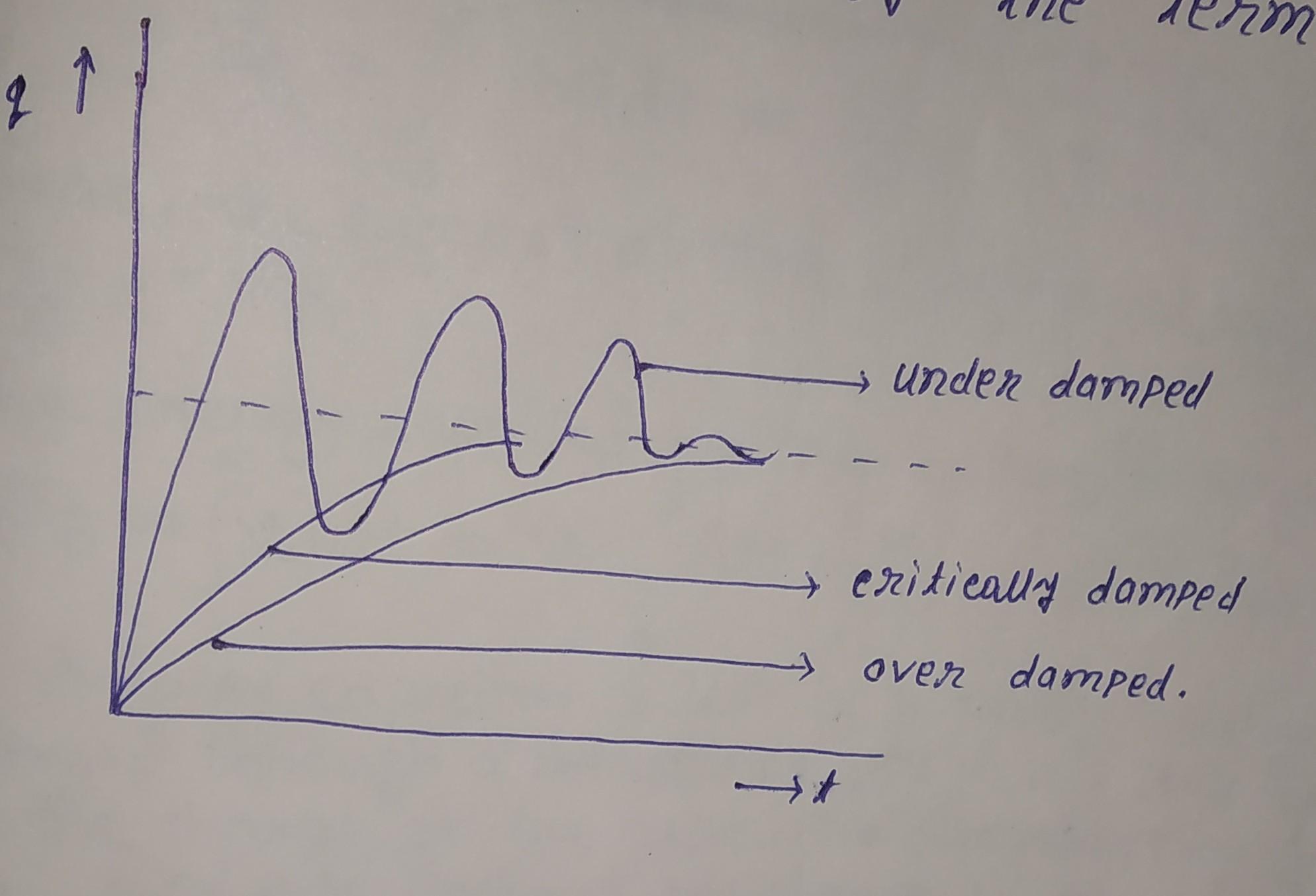Time management is very much important in IIT JAM. The eduncle test series for IIT JAM Mathematical Statistics helped me a lot in this portion. I am very thankful to the test series I bought from eduncle.
Nilanjan Bhowmick AIR 3, CSIR NET (Earth Science)- IIT JAM
- Physics (PH)
Which one is correct?
- 0 Likes
- 4 Comments
- 0 Shares
-
![comment-profile-img]() >
>
-
![comment-profile-img]() >
>
Somnath
![best-answer]()
Damping represents presence of resistance in RLC circuit.In a pure LC circuit oscillation occuurs for indefinite time. The circuit oscillates if the resistance is zero.However RLC circuit has energy consumer components R, which converts energy to heat, reducing electrical energy. Slowly the energy content reduces, leading to reduction of amplitude of oscillations, ultimately dying down completely.For lower value of resistance oscillation occurs but magnitude gradually decreases.It is called under damped. As the resistance increases, the circuit initiate oscillation but they die out. At some value of resistance these oscillations do not initiate. It is called critical damping and then over damping.
-
![comment-profile-img]() >
>
Somnath Best Answer
Current in the circuit depends on value of R,L and C.Let us define two quantity b=R/2L and w=√(1/LC). Now 1.if b>w then circuit is called over damped. 2.if b=w then circuit is called critically damped. 3.if b
w.So circuit is over damped.And option b is the correct answer. ![cropped8003243852051202640.jpg]()
![eduncle-logo-app]()
thank you sir
![eduncle-logo-app]()
You're welcome.
![eduncle-logo-app]()
sir can you provide the condition of damping again..i found some prblms in understanding.
![eduncle-logo-app]()
Do you need full solution of a Series LCR circuit?
![eduncle-logo-app]()
yes
![eduncle-logo-app]()
Ok, I will send you the full solution in morning .I have already discussed the concept of damping in previous comment.Read it now and you will get solution in morning.
![eduncle-logo-app]()
ok😊
Do You Want Better RANK in Your Exam?
Start Your Preparations with Eduncle’s FREE Study Material
- Updated Syllabus, Paper Pattern & Full Exam Details
- Sample Theory of Most Important Topic
- Model Test Paper with Detailed Solutions
- Last 5 Years Question Papers & Answers
Sign Up to Download FREE Study Material Worth Rs. 500/-










 >
>
 >
>










Somnath![best-answer]()
Dear Sayan, Here is your complete solution.
thank you sir